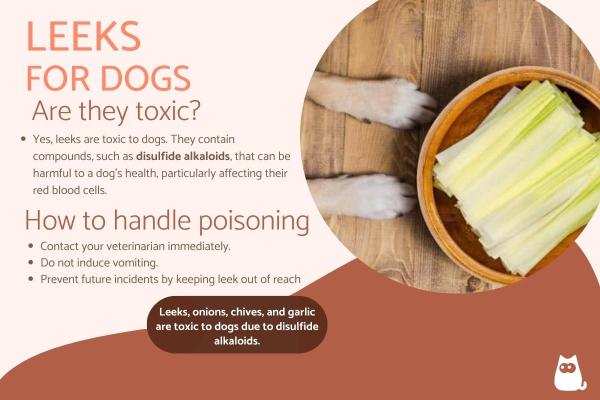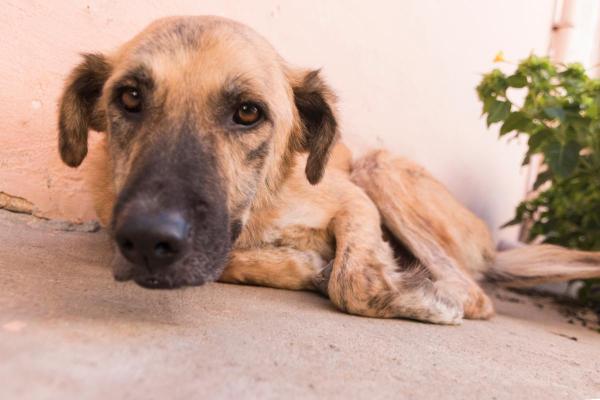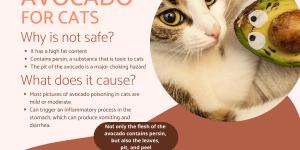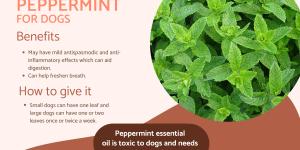Can Dogs Eat Leek?



See files for Dogs
While leeks may be a nutritious and flavorful addition to our meals, they pose a significant health risk to our canine companions. Leeks belong to the Amaryllidaceae family, which includes other toxic plants for dogs, such as onions, chives, and garlic. The harmful effects of leeks stem from their disulfide alkaloid content, which damages red blood cells in dogs.
In this comprehensive AnimalWised article, we delve into the reasons why leeks are harmful to dogs, examining the potential health consequences of leek consumption and outlining preventive measures to safeguard your dog's well-being.
Can dogs eat leek?
Leeks, similar to other members of the Allium family, such as onions, chives, and garlic, are known to be toxic to dogs. The toxicity of these vegetables can be attributed to the presence of disulfide alkaloids. These compounds can have harmful effects on a dog's red blood cells, potentially leading to conditions like hemolytic anemia.
Can dogs eat cooked leek?
You might wonder if cooking leeks eliminates their toxicity, but unfortunately, it does not. The toxic compounds in leeks remain potent even after cooking. In fact, chopping, cooking, or chewing the vegetable can further release these toxins. Additionally, gastrointestinal bacteria during digestion can activate these harmful compounds.
Did you know that leeks, along with certain other vegetables, can pose significant health risks to rabbits? Expand your knowledge about rabbit-safe nutrition and discover which vegetables to avoid by exploring our other article.
Why can't dogs eat leeks?
Disulfide alkaloids, specifically thiosulfate compounds, have the power to damage red blood cells (erythrocytes) in dogs. When a dog consumes leeks, these compounds enter the bloodstream and attack the membranes of red blood cells, leading to a condition called hemolytic anemia.
Hemolytic anemia is a severe condition where red blood cells are destroyed faster than they can be replenished. This hampers the blood's ability to carry oxygen, causing weakness, lethargy, pale gums, and even collapse. In extreme cases, hemolytic anemia can be fatal.
The harmful effects of disulfide alkaloids extend beyond red blood cells. Prolonged exposure can damage a dog's internal organs, especially the kidneys. This damage can accumulate over time, leading to chronic health problems.
The severity of leek poisoning depends on the amount ingested and the dog's size. Even small amounts can be harmful, and symptoms may not appear immediately. Therefore, if you suspect your dog has consumed leeks, seek immediate veterinary attention. Early intervention can prevent or minimize serious health issues.
To delve deeper into this subject, we invite you to read our article on hemolytic anemia in dogs, where you'll gain valuable insights into its causes, symptoms, and treatment options.
Symptoms of leek poisoning
Leeks contain harmful compounds that can cause a range of health problems in dogs. If your dog has ingested leeks, you might observe these symptoms:
- Gastrointestinal distress: vomiting and diarrhea are often the first signs of leek poisoning. These symptoms can appear within a few hours of ingestion. They typically occur as the dog's body tries to expel the toxic compounds.
- Lethargy and weakness: as the toxins affect red blood cells, dogs may become lethargic and weak. This is because red blood cells are responsible for carrying oxygen throughout the body, and their destruction reduces the blood's oxygen-carrying capacity.
- Pale gums: the loss of red blood cells can cause a dog's gums to become pale or even white, indicating anemia.
- Rapid breathing and increased heart rate: as the body tries to compensate for reduced oxygen delivery, dogs may breathe faster and their heart rate may increase. If left untreated, this can put strain on the heart and respiratory system.
- Hemolytic anemia: In severe cases, leek poisoning can lead to hemolytic anemia, a condition where red blood cells are destroyed faster than they can be replaced. This can cause life-threatening complications if left untreated.
Remember, early intervention is crucial in leek poisoning cases. If you suspect your dog has consumed leeks, contact your veterinarian immediately. Prompt diagnosis and treatment can prevent serious complications and ensure your dog's well-being.
To better understand your dog's health and how to address potential concerns, it's important to recognize the significance of your dog's gum color. Learn more about it in this other article.

What should I do if my dog has eaten leeks?
If you suspect your dog has eaten leeks, act promptly and follow these steps:
- Contact your veterinarian immediately. Time is of the essence in leek poisoning cases. Inform your veterinarian about the amount of leek your dog consumed and when it happened.
- Do not induce vomiting unless instructed by your veterinarian. Inducing vomiting without proper guidance can cause further complications.
- Provide your veterinarian with a detailed history of your dog's health, including any medications or supplements they are taking. This information will help your veterinarian make informed decisions about treatment.
- Keep your dog comfortable and calm. Provide a quiet and comfortable environment for your dog to rest and recover.
Prevent future incidents by keeping leeks and other toxic plants out of your dog's reach. Securely store these items and dispose of food scraps containing these vegetables carefully. To learn more about what to do in case of poisoning, don't miss our other article, where we explain the necessary steps.
If you want to read similar articles to Can Dogs Eat Leek?, we recommend you visit our Homemade diets category.
- Gràcia Veterinaris. (2022). Allium spp poisoning in animals. Available at: https://graciaveterinaris.com/es/intoxicacion-por-allium-spp-en-animales/






